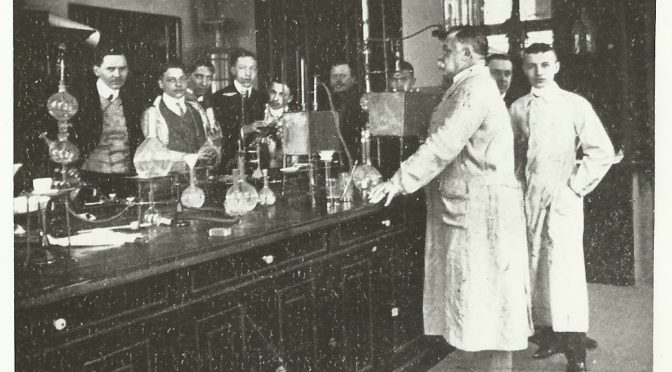CEFRES Platform Workshop for Young Scholars
Deadline for submission: February 28, 2017
Decision notification due: March 15, 2017
Submission of papers: May 15, 2017
Date & Place: CEFRES, Prague, June 6, 2017
Language of the workshop: English
Organizer: Mátyás Erdélyi (CEFRES & CEU)
Partners: CEFRES and Department of Historical Sociology of the Faculty of Humanities, Charles University
Confirmed discussants: Marianne Blanchard (University of Toulouse, ESPE Midi-Pyrénées /CERTOP); Marcela Efmertová (ČVUT) ; Jiří Hnilica (Charles University, Faculty of Pedagogy); Victor Karady (Central European University, Department of History)
Please send a paper title, a 400 word-long abstract, and a short academic CV to: matyas.erdelyi@cefres.cz. A limited number of accommodation grants are available.
Call for papers
The emergence of business or trade education makes an essential, although seldom recognized, part of the overall modernization of European societies in the nineteenth century. The significant growth of business schools in the middle of the nineteenth century can be directly connected to the second phase of industrialization and, consequently, to the growing needs of a professionally trained workforce in industry and trade. The present workshop is interested in the history of all types of business education – schools teaching uniquely business courses and other vocational-technical schools offering business courses (e.g. the Technische Hochschulen). It thus seeks to provide a comparative overview of the emergence of business education in its historical context focusing on the following problem areas: the business school in the educational field, its economic context, its social environment, and its scientific pretensions in the Europe between 1818 and 1938.
The workshop will bring together junior researchers (PhD candidates and early career researchers) engaged in the field of the history of science, social history, economic history, the history of ideas, or sociology.
A) The Institutionalization and Systematization of Business Education
In the educational context, the emergence of business education can be studied in relation to the general systematization of secondary and higher education, as part of the social transformation of the educational system in the nineteenth century, and as one of the main forms of institutional diversification. We are interested in case studies of institutions and national systems of business education that reflect upon the historical development and the functioning of business schools, the legislative, economic, cultural environment of their foundation, the origins of the curriculum, the transfer and influence of institutional patterns in the European context, the conflict between state and private institutions, the professionalization of business education (professional associations, teacher training colleges, professional journals, publication of textbooks), and the scope of the business schools and their positioning in relation to other forms of education.
B) The Business School in the Economic Context
This problem area seeks contributions that address the following general questions: what is the contribution of business education to economic transformation, industrialization, and the rise of capitalism? How business methods influence the cognitive content of vocational education; how the connections between the business school and the world of business could be comprehended (direct involvement of businessmen in the management of schools, recruitment patterns in business favoring or not favoring certain qualifications, professors co-employed in schools and business enterprises)? What are the career patterns of business school graduates and how to analyze the connection between the emergence of the large enterprise, the separation of ownership management, and the rise of vocational education?
C) The Business School in Society
The main concept here is the social transformation of secondary and higher education, which refers to the social functions the educational system performed in the frame of larger social change (mobility, social legitimation, etcetera). The aura of secondary and higher education could enhance the social recognition of certain professions (most importantly trade); and most business schools became an important avenue of social mobility as it granted access to secondary education and provided bourgeois social prerogatives to its graduates. We invite contributions dealing with recruitment patterns of business schools (social and denominational) in relation to other educational institutions, the social representation and prestige of the school, the business school as an avenue of mobility, its function in the shift from an emphasis on hereditary rights to meritocracy, the evaluation of the gender proportions in business schools.
D) The Business School and Science
This section of the workshop concentrates on the status and production of knowledge transmitted in business schools. Their emergence is intertwined with a claim over the scientificity of the ‘sciences of trade’ (sciences commerciales, Handelswissenschaften, obchodní nauka, kereskedelmi tudományok). However, there is an increasing gap between the theory and practice of business in the educational setting. It is not by chance that contemporaries vehemently discussed whether the instruction of business and trade should be comprehended as a Bildung or as a vocational training. Contributions may address the following problem areas: how the scientificity of business management is enhanced through the educational system and vice versa; how to conceptualize the contention between theoretical knowledge and practical skills in the field of business education; how the interaction of scientists and business reshape scientific epistemologies, methods, and tools; who the agents are and where the knowledge production of business management takes place.



